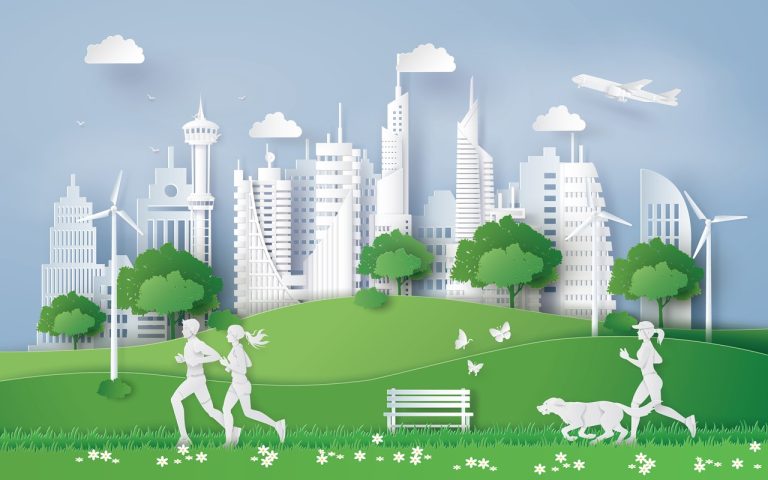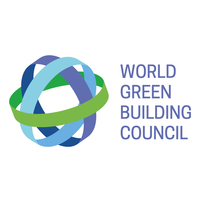The World Green Building Council (WorldGBC) ‘Asia Pacific Leadership in Green Building Awards’, showcases the businesses and innovators breaking ground for sustainable buildings. One of this year’s categories, Women in Green Building Leadership Award, celebrates the inspiring female leaders from the movement. Other awards categories include: The Business Leadership in Sustainability Award presented to Cundall, and The Leadership in Sustainable Design and Performance Award presented to CoEvolve Northern Star by CoEvolve Estates, Chai Wan Campus for the Technological and Higher Education Institute of Hong Kong by Ronald Lu & Partners, Paramit Factory in the Forest by Paramit Malaysia Sdn Bhd, and Special Recognition to Arthaland Century Pacific Tower by Arthaland Corporation. Women in Green Building Leadership Award In a traditionally male-dominated industry, the Women in Green Building Leadership Award represents a significant step to encourage women and diversity in leadership. WorldGBC recognises the increasingly important role that women have to play as sustainability champions and is proud that almost half of the CEOs from its 40 Established Green Building Councils are women. This award was designed with the support of WorldGBC’s regional partner, AkzoNobel. Ye Qing, winner of the Women in Green Building Leadership Award, is a renowned green building leader from China. She is acknowledged for her 20 years’ service as an ardent advocate for sustainability in the built environment. As President at the Shenzhen Institute of Building Research (IBR), Ye Qing has driven the design of over 60 million square metres of green buildings, and the planning of 6,000 square kilometres of green cities in China. In 2005, Ye Qing initiated Shared Design, a methodology to bring the project owner and design team together to ensure a balance between people, nature, buildings and cities. Shared Design has now been incorporated into national standards, following its proven impact. In 2019 Ye Qing also helped to develop the China Assessment Standard for Green Building. Ye Qing, said: “Women have a natural affinity with Green buildings. Green means nature and embodies our living world, our mother earth. Women are an icon for all life and love. With the symbiosis and sustainability in nature, women can instil the essence of love in the development of green building. So as global society recognises the importance of green buildings to protect our world, it is also a fitting platform for the promotion of diversity, gender equality and for women’s social status and career development”. Asia Pacific Leadership in Green Building Awards 2020 The biennial event, first held in 2014, celebrates Asia Pacific’s brightest achievements towards a more sustainable built environment. An independent panel of high-profile judges assessed nominations from Asia Pacific Green Building Councils and selected winners in three awards categories: The Women in Green Building Leadership Award The Business Leadership in Sustainability Award The Leadership in Sustainable Design and Performance Award (Residential, Institutional, Commercial) Other winners: Business Leadership in Sustainability Award Winner: Cundall (Australia) – awarded for Cundall’s commitment to reducing its impact on the planet by developing a sustainability policy with impressive targets and action plans, from zero carbon energy to ethics and equity. David Clark, Director & Partner, Cundall: “Climate change, health and wellbeing and the biodiversity crisis are just some challenges we face as a global society. Is there any moral alternative other than taking action? This humbling recognition is an opportunity to share our journey and highlight the initiatives we’ve implemented so far. If we can inspire others to embrace sustainable approaches, that would be the best result to come from winning the Business Leadership in Sustainability Award.” Leadership in Sustainable Design and Performance Award (Residential) Winner: CoEvolve Northern Star by CoEvolve Estates (India) – the highest rated green building in the state of Karnataka. Spokesperson, CoEvolve: “It is a great honour to be recognized by the World Green Building Council. This is our second nomination after Asset Aura (2016). Our relentless efforts in building sustainable communities has been validated by this award. Sustainable living is not only the right way forward but THE ONLY way forward. We hope this recognition will motivate others to go green. CoEvolve Estates remains committed to a sustainable future.” (Institutional) Winner: Chai Wan Campus for the Technological and Higher Education Institute of Hong Kong (THEi) by Ronald Lu & Partners (Hong Kong) – a campus designed as a vertical community-centric green space. Spokesperson, Ronald Lu & Partners: “We salute WorldGBC who recognises the THEi New Campus at ChaiWan as a new benchmark for high-density-low-carbon sustainable campus, and our client – the Vocational Training Council who is committed to such vision at the outset. The Campus is the making of a community for learning, innovation and knowledge creation, where urban climate is harnessed, sky-rise biodiversity is nurtured, social inclusiveness and wellness are fostered”. (Commercial) Winner: Paramit, Factory in the Forest by Paramit Malaysia Sdn Bhd (Malaysia) – a case study of industrial biophilic design, integrating nature with complex climate-control systems. Spokesperson, Paramit: “Industrial Buildings conceived and oriented in ‘sustainable thinking’ will reduce operational cost, meet functional goals and uplift human spirits. Our mission was to urgently make this point in a rapidly developing region with hundreds of large factories coming up every year. This award helps us make that point and we are honored to have received it.” Special Recognition for Advancing Net Zero goes to Arthaland Corporation (Philippines) for its net zero carbon Arthaland Century Pacific Tower. Jaime C. González, Vice-Chairman and President, Arthaland Corporation: “As a real estate company fully committed to the development of green and sustainable properties, we are delighted that our efforts have been recognized. We are particularly proud of the Arthaland Century Pacific Tower, the first certified net zero carbon building in the Philippines. I wish the World Green Building Council – Asia Pacific Network and its members more power and thank you for this very much appreciated recognition.” Read more information about each winner.






